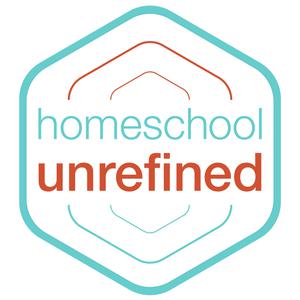
Homeschool Unrefined
Maren Goerss and Angela Sizer
Where we keep homeschool simple, real and fun.
- 41 minutes212: Our Best Advice + Our Audiobook Is Here!
Join us for our last podcast episode, where we chat about our best advice!
After eight years of podcasting, this is our last episode. We’ve combined what we’ve learned over all of our years of homeschooling, podcasting, and educating and have condensed everything into our best advice.
Listen along as we explore five concepts that have truly stood the test of time!
Our Best Advice:
-
Trust children
-
Be yourself
-
Continually adjust expectations
-
Less is more
-
Find the joy
And of course, let's always remember how important connection is!
We’re here to show you how to:
Identify learning opportunities in everything you do, how to celebrate your child’s differences, and how to give yourself and your kids credit for all the things you’re already doing.
If you have felt unwelcome in other spaces, we hope you feel welcome here.
LTWs
Maren
Rebel Spirit Podcast with Akilah Hughes
I've been thoroughly enjoying this podcast. It sheds light on efforts to right historic wrongs, specifically as we follow Akilah on her journey to attempt to change a problematic mascot in her southern hometown. Eye-opening!
Angela
Into The Fire: The Last Daughter on Netflix
This documentary is compelling, fascinating, and so well done! Definitely not for young kids so be sure to enjoy this when the littles aren't around.
Our audiobook is out!
It was really important for us to be able to offer an audiobook and you can now order from wherever you get your audiobooks.
Order our book!
You can order "Think Differently About Learning: A Homeschool Where Children And Parents Thrive" from the following vendors, or wherever books are sold.
Every positive review we receive helps us reach more people so please consider leaving a review. Thank you!
Let's stay in touch!
Even though our podcast is coming to an end, we still want to stay in touch! Visit our website, follow us on Instagram: @homeschoolunrefined, and email us any questions or feedback at [email protected]. Be sure to follow Maren for ADD, homeschooling, and parent coaching on Instagram: @alwayslearningwithmaren and her website alwayslearninglife.com.
If you’re not already receiving our newsletter, be sure to sign up! We’ll be checking in from time to time through our newsletter so this is definitely the best way to stay in touch.
Please know that all of our episodes are still available for you to listen to. We’ve covered so many topics and have interviewed some truly amazing people, so be sure to listen (and relisten) to the episodes that resonate with you!
21 October 2024, 6:00 am -
- 54 minutes 54 secondsBonus Episode: Our Thoughts On Education with Teresa Wiedrick
Join us as Angela and Teresa Wiedrick dive into their thoughts on education!
Teresa Wiedrick is an author, podcaster, and coach. She helps homeschool moms shed what's not working so they can stop pushing through and enjoy their homeschool again.
Connect with Teresa!
We’re here to show you how to:
Identify learning opportunities in everything you do, how to celebrate your child’s differences, and how to give yourself and your kids credit for all the things you’re already doing.
If you have felt unwelcome in other spaces, we hope you feel welcome here.
You can now order our book!
You can order "Think Differently About Learning: A Homeschool Where Children And Parents Thrive" from the following vendors, or wherever books are sold.
Every positive review we receive helps us reach more people so please consider leaving a review. Thank you!
Connect with us!
Visit our website and follow us on Instagram: @homeschoolunrefined. Follow Maren for ADD, homeschooling, and parent coaching: @alwayslearningwithmaren.
Sign up for our newsletter and get our Top 100 Inclusive Book List.
We are listener-supported! Support us on Patreon and get access to our special Q&P (Question and Process) episodes!
Email us any questions or feedback at [email protected].
30 September 2024, 6:00 am - 58 minutes 53 seconds211: Raising Critical Thinkers With Julie Bogart
Join us as Julie Bogart comes back to talk critical thinking!
Julie Bogart is an author, speaker, podcast host, and creator and owner of Brave Writer, an online writing and language arts program.
In our conversation, we chat about her book Raising Critical Thinkers: A parent's guide to growing wise kids in the digital age, as well as Becoming a Critical Thinker: A Workbook to Help Students Think Well in an Age of Disinformation which offers a practical resource to grow students’ ability to think well in an age of information overload.
We're excited to have you join us as we discuss why critical thinking is of the utmost importance, now more than ever.
Connect with Julie!
Classes Mentioned:
We’re here to show you how to:
Identify learning opportunities in everything you do, how to celebrate your child’s differences, and how to give yourself and your kids credit for all the things you’re already doing.
If you have felt unwelcome in other spaces, we hope you feel welcome here.
You can now order our book!
You can order "Think Differently About Learning: A Homeschool Where Children And Parents Thrive" from the following vendors, or wherever books are sold.
Every positive review we receive helps us reach more people so please consider leaving a review. Thank you!
Connect with us!
Visit our website and follow us on Instagram: @homeschoolunrefined. Follow Maren for ADD, homeschooling, and parent coaching: @alwayslearningwithmaren.
Sign up for our newsletter and get our Top 100 Inclusive Book List.
We are listener-supported! Support us on Patreon and get access to our special Q&P (Question and Process) episodes!
Email us any questions or feedback at [email protected].
5 August 2024, 6:00 am - 1 hour 2 minutesBonus Episode: Seeing Children As Humans with Rachel Rainbolt
Join us for this special bonus episode with Rachel Rainbolt where we explore the importance of seeing children as humans!
Rachel Rainbolt is a therapist, coach, writer, educator, and host of the Sage Family Podcast.
Connect with Rachel!
We’re here to show you how to:
Identify learning opportunities in everything you do, how to celebrate your child’s differences, and how to give yourself and your kids credit for all the things you’re already doing.
If you have felt unwelcome in other spaces, we hope you feel welcome here.
You can now order our book!
You can order "Think Differently About Learning: A Homeschool Where Children And Parents Thrive" from the following vendors, or wherever books are sold.
Connect with us!
Visit our website and follow us on Instagram: @homeschoolunrefined. Follow Maren for ADD, homeschooling, and parent coaching: @alwayslearningwithmaren.
Sign up for our newsletter and get our Top 100 Inclusive Book List.
We are listener-supported! Support us on Patreon and get access to our special Q&P (Question and Process) episodes!
Email us any questions or feedback at [email protected].
15 July 2024, 6:00 am - 1 hour 2 minutesBonus Episode: Creativity And Homeschool with Julie Soul
Join us for this special bonus episode with Julie Soul all about creativity and homeschool!
Julie Soul is the host of the Creative Homeschool Podcast. She is also the founder of Soul Sparklettes Art and The Glitter Bomb®. Her mission is to inspire and empower anyone who teaches art to kids!
Connect with Julie!
We’re here to show you how to:
Identify learning opportunities in everything you do, how to celebrate your child’s differences, and how to give yourself and your kids credit for all the things you’re already doing.
If you have felt unwelcome in other spaces, we hope you feel welcome here.
You can now order our book!
You can order "Think Differently About Learning: A Homeschool Where Children And Parents Thrive" from the following vendors, or wherever books are sold.
Connect with us!
Visit our website and follow us on Instagram: @homeschoolunrefined. Follow Maren for ADD, homeschooling, and parent coaching: @alwayslearningwithmaren.
Sign up for our newsletter and get our Top 100 Inclusive Book List.
We are listener-supported! Support us on Patreon and get access to our special Q&P (Question and Process) episodes!
Email us any questions or feedback at [email protected].
1 July 2024, 6:00 am - 1 hour 5 minutesBonus Episode: Homeschooling & Motivation with Casey O'Roarty
Join us for this special bonus episode with Casey O'Roarty where we discuss homeschooling and motivation.
Casey O’Roarty, M.Ed, is a Positive Discipline Lead Trainer and Coach. She hosts the Joyful Courage podcast, parenting summits, live and online classes, and individual coaching. Her book, Joyful Courage: Calming the Drama and Taking Control of YOUR Parenting Journey was published in May 2019.
Connect with Casey!
We’re here to show you how to:
Identify learning opportunities in everything you do, how to celebrate your child’s differences, and how to give yourself and your kids credit for all the things you’re already doing.
If you have felt unwelcome in other spaces, we hope you feel welcome here.
You can now order our book!
You can order "Think Differently About Learning: A Homeschool Where Children And Parents Thrive" from the following vendors, or wherever books are sold.
Connect with us!
Visit our website and follow us on Instagram: @homeschoolunrefined. Follow Maren for ADD, homeschooling, and parent coaching: @alwayslearningwithmaren.
Sign up for our newsletter and get our Top 100 Inclusive Book List.
We are listener-supported! Support us on Patreon and get access to our special Q&P (Question and Process) episodes!
Email us any questions or feedback at [email protected].
1 July 2024, 6:00 am - 39 minutes 50 secondsBonus Episode: Differently wired Learners with Debbie Reber
Join us for this special bonus episode with Debbie Reber where we discuss differently wired learners!
Debbie created Tilt Parenting in early 2016 in the hopes that no parent walking this unmarked path will ever feel alone again; to help frustrated and stuck parents feel connected and grounded as they chart a path that feels positive and hopeful for the whole family.
Connect with Debbie!
Tilt ParentingWe’re here to show you how to:
Identify learning opportunities in everything you do, how to celebrate your child’s differences, and how to give yourself and your kids credit for all the things you’re already doing.
If you have felt unwelcome in other spaces, we hope you feel welcome here.
You can now order our book!
You can order "Think Differently About Learning: A Homeschool Where Children And Parents Thrive" from the following vendors, or wherever books are sold.
Connect with us!
Visit our website and follow us on Instagram: @homeschoolunrefined. Follow Maren for ADD, homeschooling, and parent coaching: @alwayslearningwithmaren.
Sign up for our newsletter and get our Top 100 Inclusive Book List.
We are listener-supported! Support us on Patreon and get access to our special Q&P (Question and Process) episodes!
Email us any questions or feedback at [email protected].
25 June 2024, 6:00 am - 27 minutes 18 seconds210: When Struggles Happen
Join us as we discuss a challenging topic: When struggles happen!
Let's get right to it! When struggles happen, it's usually because our kids aren't doing what we want them to do. Parents often have an agenda and kids often don't have that same agenda.
There's a big difference between reacting vs responding and we discuss this in detail. We also dive into how the disparity between our priorities vs the needs of our children is often what creates struggles.
We share our simple (but oh-so-effective!) strategy for responding to struggles when they arise.
3-Step Response Strategy
- Stop and take a break
- Take responsibility and get curious
- Co-create a plan together
Using this 3-step response strategy and working through a struggle is often the best form of learning that our children can experience. Don't forget to celebrate working through a struggle together!
This last season of our podcast is for homeschooling parents, traditional school parents, and everyone in between. This is our last season and definitely our best season!
We’re here to show you how to:
Identify learning opportunities in everything you do, how to celebrate your child’s differences, and how to give yourself and your kids credit for all the things you’re already doing.
If you have felt unwelcome in other spaces, we hope you feel welcome here.
LTWs
Angela:
Beyond That, The Sea by Laura Spence-Ash
ChatGPT told me I would like this and they were spot on! I listened to it and loved it.
Maren:
This takes the pressure off my lower back and hips while working at my computer! Also great for ADHD because I can rock. That small movement helps me focus!
You can now pre-order our book!
Our book will be released on June 18th! You can pre-order "Think Differently About Learning: A Homeschool Where Children And Parents Thrive" from the following vendors, or wherever books are sold.
Connect with us!
Visit our website and follow us on Instagram: @homeschoolunrefined. Follow Maren for ADD, homeschooling, and parent coaching: @alwayslearningwithmaren.
Sign up for our newsletter and get our Top 100 Inclusive Book List.
We are listener-supported! Support us on Patreon and get access to our special Q&P (Question and Process) episodes!
Email us any questions or feedback at [email protected].
17 June 2024, 6:00 am - 27 minutes 18 seconds209: Devices, Technology & Screens
Join us as we discuss devices, technology & screens!
We know this is a hot topic and one that can often be heated. It's complicated and encompasses an ever-changing landscape.
What is it about screens that captivates our kids? A sense of community, autonomy, and dopamine are three key words to keep in mind. Our world is technology-dependent and connected so it's important that we empower ourselves and our kids, and get curious while we seek to understand this issue.
Together, let's dive into the following:
- Our kids are watching us and our relationship with screens. Like it or not, we are modeling for them!
- It's critical that we teach media and tech literacy.
- It's essential that we create a plan together, with our kids.
This last season of our podcast is for homeschooling parents, traditional school parents, and everyone in between. This is our last season and definitely our best season!
We’re here to show you how to:
Identify learning opportunities in everything you do, how to celebrate your child’s differences, and how to give yourself and your kids credit for all the things you’re already doing.
If you have felt unwelcome in other spaces, we hope you feel welcome here.
LTWs
Angela:
Almost two months later, this album is still a bop.
Maren:
I have become a TV show snob, and this show checks all the boxes for me! This is a locked room murder mystery, which grabs my attention every time. Almost the entire season 1 takes place on a yacht. It unfolds the present timeline with family, financial, and social drama, plus jumps back to a previous unsolved murder very much entangled with this one. The vibe is Knives Out meets Succession.
You can now pre-order our book!
Our book will be released on June 18th! You can pre-order "Think Differently About Learning: A Homeschool Where Children And Parents Thrive" from the following vendors, or wherever books are sold.
Connect with us!
Visit our website and follow us on Instagram: @homeschoolunrefined. Follow Maren for ADD, homeschooling, and parent coaching: @alwayslearningwithmaren.
Sign up for our newsletter and get our Top 100 Inclusive Book List.
We are listener-supported! Support us on Patreon and get access to our special Q&P (Question and Process) episodes!
Email us any questions or feedback at [email protected].
3 June 2024, 6:00 am - 26 minutes 4 seconds208: Getting Honest About Socialization
Join us as we discuss getting honest about socialization!
This is a biggie! When people ask about socialization, they’re usually wondering about one of the following:
-
How will the homeschooled child spend time with other children?
-
How will the homeschooled child learn to act appropriately in situations where other people are around?
-
Will homeschooling turn a child into a weird, eccentric kid?
We’re here to validate any concerns you might have about socialization and help put your mind at ease.
This last season of our podcast is for homeschooling parents, traditional school parents, and everyone in between. This is our last season and definitely our best season!
We’re here to show you how to:
Identify learning opportunities in everything you do, how to celebrate your child’s differences, and how to give yourself and your kids credit for all the things you’re already doing.
If you have felt unwelcome in other spaces, we hope you feel welcome here.
LTWs
Angela:
I’ve already stocked up for summer!
Maren:
If you’ve been around Homeschool Unrefined for a while, you know I’ve used this smart water bottle in the past! After several year’s hiatus, I’m back. The new, updated water bottle is smarter, way easier to clean, and comes with a long-lasting, rechargeable base. It solves all the problems I had with their old bottle, and then some. I love the new tumbler model, which sits by my side all day long.
You can now pre-order our book!
Our book will be released on June 18th! You can pre-order "Think Differently About Learning: A Homeschool Where Children And Parents Thrive" from the following vendors, or wherever books are sold.
Connect with us!
Visit our website and follow us on Instagram: @homeschoolunrefined. Follow Maren for ADD, homeschooling, and parent coaching: @alwayslearningwithmaren.
Sign up for our newsletter and get our Top 100 Inclusive Book List.
We are listener-supported! Support us on Patreon and get access to our special Q&P (Question and Process) episodes!
Email us any questions or feedback at [email protected].
20 May 2024, 6:00 am -
- 30 minutes 30 seconds207: Easy Ways To Connect With Your Kids
Join us as we talk about easy ways to connect with your kids!
Connection is the foundation for everything and is the answer to a lot of common issues.
We explore these easy ways to connect with your kids:
-
Enter their world, listen, and be curious
-
Let go of your expectations and plans
-
Own your mistakes
-
Invite vs impart
This last season of our podcast is for homeschooling parents, traditional school parents, and everyone in between. This is our last season and definitely our best season!
We’re here to show you how to:
Identify learning opportunities in everything you do, how to celebrate your child’s differences, and how to give yourself and your kids credit for all the things you’re already doing.
If you have felt unwelcome in other spaces, we hope you feel welcome here.
LTWs
Angela:
This is the best dry shampoo I’ve tried - I have this on auto-ship!
Maren:
I have ADHD. The moment I received my first email address in college, life has gotten a little more complicated. Since then I’ve been chasing Inbox Zero to no avail, until Superhuman. Superhuman makes managing and organizing my email simple, and dare I say it, easy. I now see important emails coming in. I can find old emails I need at the right moment. And I often get to Inbox Zero. I’m finally at peace with email. Use my link for a free month!
You can now pre-order our book!
Our book will be released on June 18th! You can pre-order "Think Differently About Learning: A Homeschool Where Children And Parents Thrive" from the following vendors, or wherever books are sold.
Connect with us!
Visit our website and follow us on Instagram: @homeschoolunrefined. Follow Maren for ADD, homeschooling, and parent coaching: @alwayslearningwithmaren.
Sign up for our newsletter and get our Top 100 Inclusive Book List.
We are listener-supported! Support us on Patreon and get access to our special Q&P (Question and Process) episodes!
Email us any questions or feedback at [email protected].
6 May 2024, 6:00 am -
- More Episodes? Get the App
Your feedback is valuable to us. Should you encounter any bugs, glitches, lack of functionality or other problems, please email us on [email protected] or join Moon.FM Telegram Group where you can talk directly to the dev team who are happy to answer any queries.
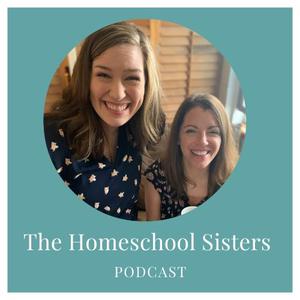 The Homeschool Sisters Podcast
The Homeschool Sisters Podcast
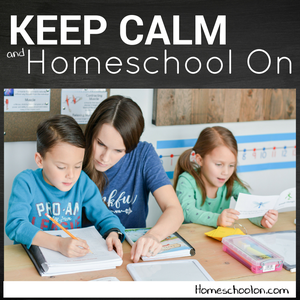 Keep Calm and Homeschool On
Keep Calm and Homeschool On
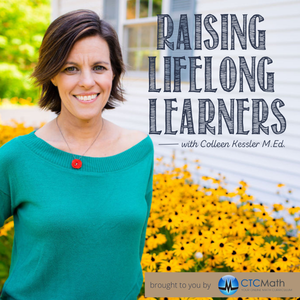 Raising Lifelong Learners
Raising Lifelong Learners
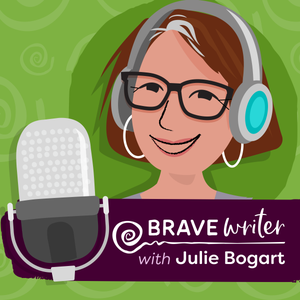 Brave Writer
Brave Writer
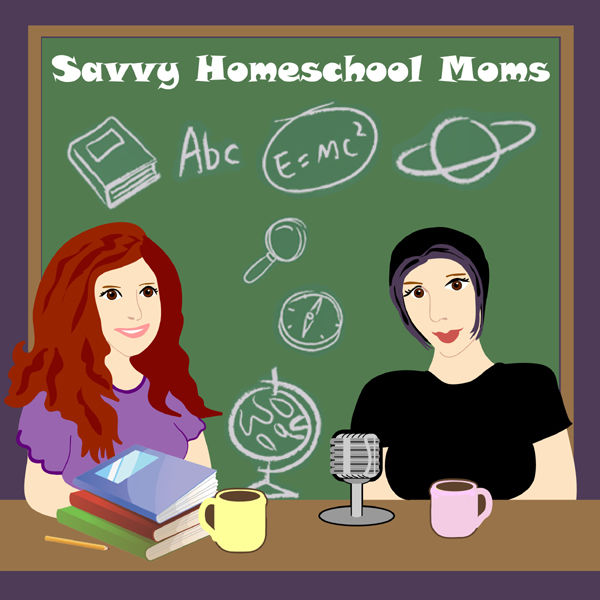 Savvy Homeschool Moms podcast
Savvy Homeschool Moms podcast
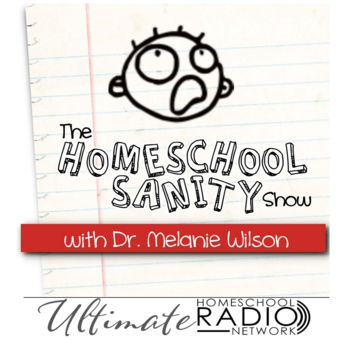 The Homeschool Sanity Show
The Homeschool Sanity Show